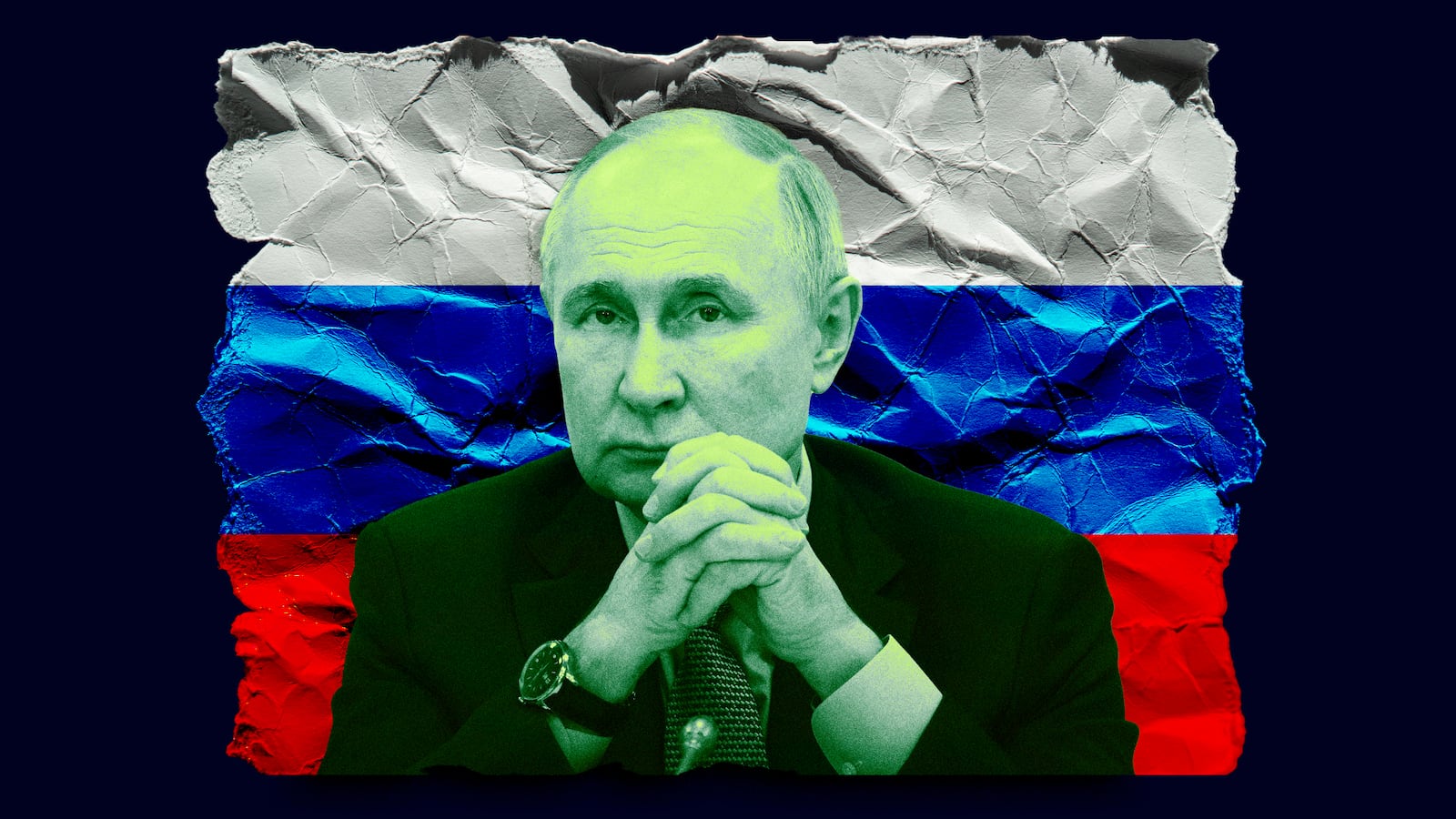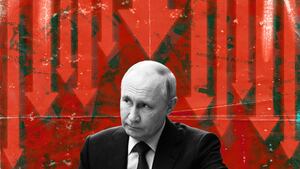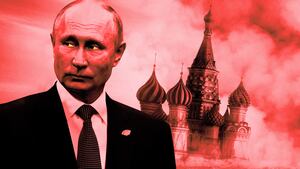Russians have been running away from political repression by Soviet and post-Soviet regimes for decades. They fled in their millions long before the war in Ukraine. But they never created vast diaspora communities until now.
Districts like Brooklyn’s Brighton Beach, which are known as Russian havens, are really dominated by Ashkenazi Jewish communities drawn from a range of former Soviet countries.
In many cases, Russians abroad say they feel insecure around their former countrymen. And, in any case, neighborliness is not a famously Russian trait; there is even a well-known saying about getting even with the neighbors you hate: “Do nasty things at night)" href="https://urldefense.com/v3/__https://lenta.ru/articles/2018/10/31/sosed/__;!!LsXw!XBP2KVdzaJdFaT91QN68VSUjcratAHOhrTnSf26lTdakemW7LDdmNP8RkZRspplPwDoGiafbciovcWsQySEVaoLI-Zg$">night,” which suggests you take revenge on the people next door under cover of darkness.
It’s taken President Vladimir Putin’s hateful invasion of Ukraine and domestic crackdown to bring the current wave of exiles together.
Russian activists are creating vast new communities in Germany, Georgia, Armenia, the United Arab Emirates, Turkey, France, the U.S., Israel, and Central Asia. Russian volunteer movements are helping Ukrainian refugees; charity activity is on the rise; Russian shelters are springing up in many cities receiving Russian exiles around the world: humanitarian and political activity seems to be the glue holding Russians together abroad these days. Even in Miami, rich Russians donate, volunteer, and host Ukrainian families escaping the war.
The new breed of Russian exile is united by the Kremlin’s latest draconian clampdown. Where Josef Stalin’s KGB used to designate out-of-favor Soviet citizens as “enemies of the people,” the modern term of choice is “foreign agents.”
Putin’s choice of terminology has undermined past efforts to build bridges to emigrant Russians in the West.
Russians who rarely united in diasporas before the war are now helping their exiled brothers.
The first “International Congress of Foreign Agents” will be held on Feb. 3 in Berlin. The event will bring together more than 150 designated ‘foreign agents.’
“All of us, hundreds of so-called ‘foreign agents,’ have shown solidarity, pulled in a solid and influential community in order to provide legal aid to persecuted people inside Russia and help exiles with visas, finding homes, finding jobs in exile,” the organizer of the congress, Marat Gelman, told The Daily Beast. “We do not consider ourselves foreign agents; our first congress aims to present our movement to the world. It is very important that we clearly state what we think about the war in Ukraine, about the upcoming presidential elections in Russia this year.”
The former editor-in-chief of The Russian Magazine, Alexander Morozov, is another of the organizers. “Putin and his men have totally failed to turn Russians abroad loyal. The expats do not believe Putin any longer,” he told The Daily Beast.
The founder of the congress is convinced that Russian “foreign agents” will get together for brainstorming once every six months. “The Kremlin did not mean it, but they brought together the leaders of Russia’s civil society: journalists, human rights defenders, leading writers, film directors, and so on.” Gelman said. “This generation will always look at Russia with the eyes of this community, which will be telling the world about the Kremlin’s repressive actions—this congress is their final verdict.”
Morozov is a professor at Prague university teaching the history of Russian political language. “Moscow’s war has emboldened Russians in the Czech Republic—more than 3,000 marched against Putin’s aggression in 2022,” he said. There were no crowds marching in the Kremlin’s support when Prague ordered 63 Russian diplomats to leave the country.
The Ark group based in Armenia has become a focal point for providing help to more than 500,000 Russians who decided they can no longer live in Putin’s Russia—at least for as long as Russia is at war with Ukraine.
Thousands of Russian journalists and human rights defenders are among those who have gone into exile. “Even those reporters who did not like each other for various reasons before the war are helping and supporting each other these days in multiple chats and groups on social media,” said Anna Mongayt, a well-known presenter on Rain TV, which is now exiled in Amsterdam. Mongayt is one of the ‘foreign agents’ organizing the Congress in Berlin. “The state of Russia ‘selected’ for persecution the best, pure and cleanest community of people, who are not indifferent: neither to helping Ukrainians in trouble nor to the future of Russia,” she said.
Celebrated artists are also among the new movement of free Russians against the war. The ongoing world tour around four continents by famous Russian rapper Oxxxymiron brought a huge crowd of fans to the Factory club in Cape Town earlier this month. Thousands of fans came to listen to him rap in Dubai’s Agenda Venues. One of his songs captures the mood: “Start with yourself! I killed the Empire in me.”
“The canceling of independent Russian culture has failed, exiled artists continue to create and perform abroad,” said Vitalij Manski, exiled film director and president of the Latvia-based Artdocfest. He told The Daily Beast that artists now had a choice to make. Many have moved abroad; others like Valery Gergiyev, the director of the Bolshoi Theater, chose to remain and show their loyalty to Putin. “I don’t think somebody like Valery Gergiyev is going to be conducting outside of Russia any time soon,” he said.
Since 2007, Artdocfest has been bringing together and helping to develop documentary film projects on the most pressing social issues and discovering and supporting filmmakers. Russian authorities designated Manski as a ‘foreign agent’ in June. According to a report by the Interfax news agency, “Manski opposed the special military operation in Ukraine, declared support for the Ukrainian authorities, spoke negatively towards citizens of the Russian Federation, identified the Russian Federation with Nazi Germany... He received support from foreign sources.”
Like many documentary makers, Manski is reluctant to make any conclusions before seeing things with his own eyes, so he remains skeptical about the upcoming Congress of Foreign Agents.
“I am skeptical about communities and foundations. Who unites with whom? But I will wait and see the gathering of ‘foreign agents,’ it might reassure me,” said Manski, who will take part in the event in Berlin. “The community needs vertical structure to realize its projects, since I meet many lost and depressed Russian exiles who have not found themselves.”
In 2021, Putin vowed that the “foreign agent” law would not label masses of Russians and that the danger of it “is greatly exaggerated.”
Two years later, hundreds of thousands of refugees from the Putin regime, plus underground resistance groups, at home are united in communities, movements, and foundations. For example, Zima, a project of immigrants based in London, is helping Russian, Ukrainian, and Belarusian exiles with cultural projects and platforms for their presentations; SlovoNovo Forum, which was founded by Gelman, is bringing the best blacklisted Russian artists to a festival in Montenegro. There are as many as 98 Russian independent media outlets and popular bloggers in exile and they are watched by 20 million Russian speakers both abroad and inside the country.
The list of foreign agents, fugitives, traitors of Russia includes more than 500 names, including Morozov, Gelman, Mansky and Mongayt.
Moscow’s social polls claim that 61 percent of Russians consider “foreign agents” to be “most likely traitors,” and 16 percent say they are fighters for human rights. Mongayt, one of the congress organizers believes that it is important for designated Russians to help each other feel dignified. “Designated and exiled we are still citizens of Russia with our fans and audience; we hope that the congress will give birth to great initiatives and also will help to bring a structure to activists,” she told The Daily Beast.







